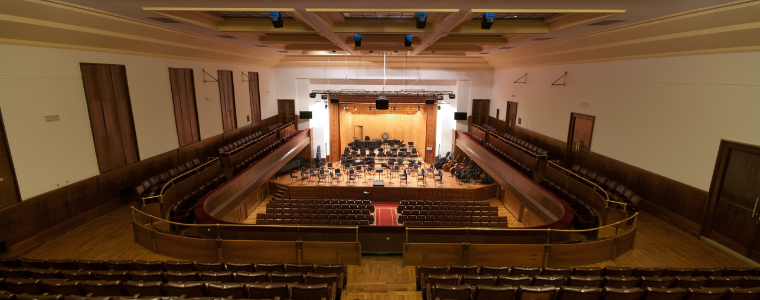5 More Best of Summer Music Jobs (2021)

One of the best ways to learn more about music-oriented careers is to get a summer internship. Read Identify Your Summer Internship Now for more information on those possibilities. In addition to internships, we also have ideas for great summer music jobs for part- and full-time workers. If you have the time and your employer is impressed, these may turn into permanent positions that work around your school schedule year-round.
In previous years, we've posted different articles aimed to help you get musical summer jobs. Visit Summer Jobs for Student Musicians to read the first one, and click here to read the second post. Today, we're adding five more opportunities to the list.
Notice that our last three suggestions don't seem immediately connected to music but are great ways to think outside of the box and get the real-world experience required to move into a music-specific job opportunity.
1. Online Music Instructor or Mentor
Advanced and semi-professional musicians are perfect candidates for online music instruction and mentoring. Students involved in their school orchestras or bands, or beginning adult musicians, might be looking for a flexible way to keep up their skills without committing to traditional music lessons.
One of the bonuses of this option is that it gives you the impetus to start a professional website and social media accounts geared towards your persona and brand. Building that presence online and in your community is another step towards your identity as a professional musician.
2. Theme Park Musician
Have a local theme park in your area? Look at their online career posts or call their human resources departments to learn more about summer and year-round employment opportunities for musicians and creatives. There are so many different positions that require musical scholarship and musicianship — from individual and band/orchestra-style performances to conducting and even theme park music composition.
Don't take "no," for an answer for too long. If you don't get a job the first time around, be vulnerable and ask for feedback to learn more about what that employer is looking for. As we mentioned in our post, Composing Music for Theme Park Rides, the exposure you get in this specific niche and less competitive arena can connect you with the right professional network that leads to more significant career opportunities in your future.
3. Volunteer (or Get a Job) at Your Local Library or Museum
If you don't need a paid position, look for volunteer positions in your community. At publication time, we are in the early stages of publicly emerging from a worldwide pandemic. Non-profit organizations such as libraries and musicians have taken a hit because volunteers could not get into the buildings, and donors cut back considerably.
If we want to keep these institutions running and ensure their musical libraries and archives remain intact and available, they need musical scholars like you to help out.
In our post, 5 Key Roles in An Orchestra You've Never Heard Of, we highlighted the importance of orchestra librarians. Your experience working in the music library of a major library or museum may be the exact type of experience future orchestras are looking for when they're ready to hire a new orchestra librarian or assistant.
4. Get a Job in a Human Resources Department
Most professional orchestras have a personnel director. This person holds the "human side" of the orchestra together. Just as an HR director and staff take care of the human components of the workforce (posting available positions, hiring, completing negotiations/contracts, handling personnel issues, etc.), personnel directors for orchestras do all of those same things for orchestra members and staff, along with other orchestra-related responsibilities.
Your experience with an HR department, combined with your music and musicianship, make you a prime candidate for a future orchestra personnel director.
5. Volunteer or Get a Job at a Local Theater Company
Sometimes, young musicians feel compelled to get a music-related job right off the bat and are disappointed or filled with self-doubt when they don't land that great music internship on the first few tries. As we mentioned in the introduction, it's essential for those in the creative arts to, well, think creatively! If you can't get to where you want to go in a straight line, it's time to think in more "around about" ways.
There's hardly a theater production on the planet that doesn't involve music somehow, and many produce musical theater productions on an annual or semi-annual basis. By working at, or volunteering for, a local theater company, you are in a prime position to say, "me, me, me," when the directors or stage managers ask for music-savvy support in any form. That experience is perfect for a young musician's resume when you strike out to work as an artistic director for an orchestra or for a more well-known musical theater company.
Got any tips for how to nail a "best of" summer music job? Have a music-related job position you'd like to fill? Share your experience and opportunities with StringOvation's Facebook network.

